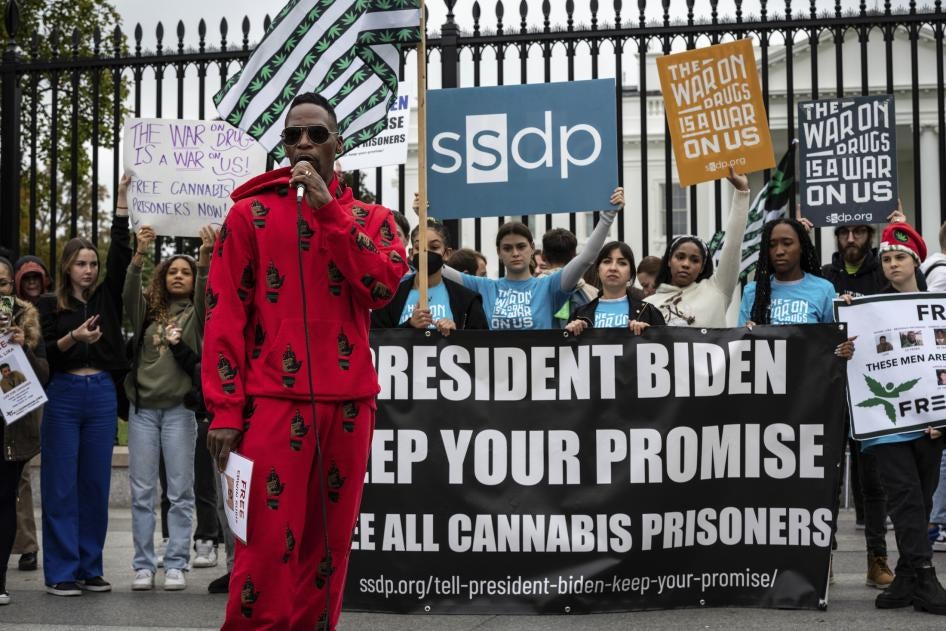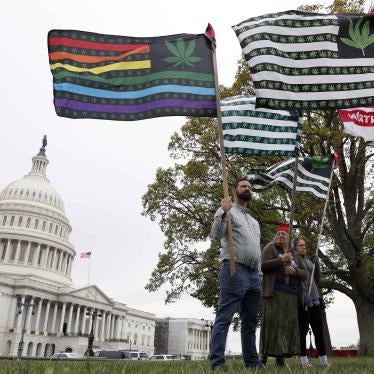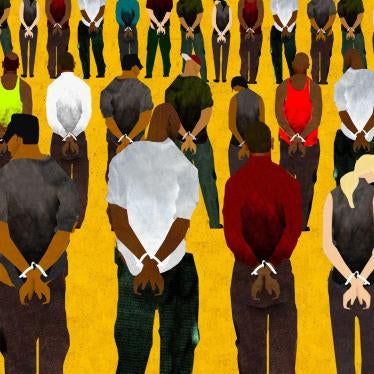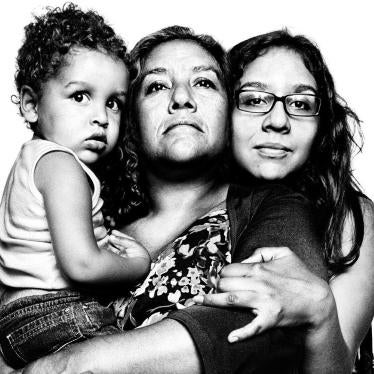This month, United States President Joe Biden announced that he would grant pardons for simple federal marijuana possession convictions.
Biden urged state governors to do the same for state offenses, which make up the bulk of US marijuana possession offenses. He also included a directive to the US secretary of health and human services and the attorney general to review how marijuana is scheduled under federal law.
These actions are a key step forward for the thousands of people, disproportionately from Black, brown, Indigenous, and Latinx communities, who have prior federal convictions for marijuana possession, and who face many barriers to employment, housing, or educational opportunities as well as adverse impacts on their families as a result. In his statement, Biden acknowledged the United States’ “failed approach” to marijuana and said, “no one should be in jail just for using or possessing marijuana.” This represents a reassessment of – and may herald a marked shift away from – decades of racist, prohibitionist US drug laws at the federal level.
The move will help at least 6,500 people who have been convicted of federal charges from 1992 to 2021, according to Biden administration officials and data from the US Sentencing Commission. (Notably none of these people are still in federal prison.) Those who lost their civic rights due to their felony conviction will be eligible for relief, including having those rights restored. A criminal record can be a barrier to employment, education, the right to vote, and certain public benefits, including public housing.
Despite Black people using marijuana at rates similar to white people, Black people are disproportionately arrested and incarcerated. An April 2020 ACLU report found that in 2018, Black people were 3.64 times more likely to be arrested for marijuana possession than white people, a disparity that had increased over past decade.
Biden’s presidential action reflects major changes in public opinion and US federal drug policy, and is consistent with decades-long research and advocacy by many groups pushing for rights respecting US drug policy. This includes the Marijuana Justice Coalition (MJC), a partnership of organizations fighting for federal marijuana reform in the United States. Led by the Drug Policy Alliance, the diverse coalition includes the American Civil Liberties Union; BOWL PAC; Center for American Progress; Center for Law and Social Policy; Clergy for a New Drug Policy; Doctors for Cannabis Regulation; Human Rights Watch; Immigrant Defense Project; Immigrant Legal Resource Center; JustLeadershipUSA; Lawyers’ Committee for Civil Rights Under Law; Leadership Conference on Civil and Human Rights; Minorities for Medical Marijuana; MoveOn; National Association of Social Workers; National Council for Incarcerated and Formerly Incarcerated Women and Girls; National Immigration Project of the National Lawyers Guild; National Organization for the Reform of Marijuana Laws; National Urban League; Parabola Center; Students for Sensible Drug Policy; Southern Poverty Law Center Action; United Food and Commercial Workers International Union; and Veterans Cannabis Coalition.
The group advocates for justice rooted in principles of racial and reparative justice and reinvestment in individuals and communities most impacted by the war on drugs. Human Rights Watch is a founding member of the MJC.
Human Rights Watch has researched and reported on the devastating effect of US drug laws on Black and brown communities since the late 1990s. A 2016 Human Rights Watch report documented that Black people were much more likely to be arrested for simple drug possession – including marijuana possession – than white people, despite the fact that white people and Black people use marijuana at similar rates. A 2014 Human Rights Watch report showed how Florida’s prosecution of children in adult court, including for marijuana possession offenses, can result in felony convictions that bar them from accessing housing, jobs, and the right to vote. The criminalization of substance use at all levels of government has been a major driver of policing: Possession of drugs for personal use is by far the single most arrested for offense in the United States, though it has yielded no meaningful reduction in substance use disorder.
While Biden’s marijuana pardon action is worth celebrating, the failure to include many noncitizens is a major policy failure. Immigrant communities are some of those most deeply impacted by marijuana criminalization in the US. Human Rights Watch studied the long-term impacts of minor drug convictions on immigrants, which can result in detention, deportation, family separation, ineligibility for asylum, and the inability to obtain legal status in the US. US drug policies have had devastating impacts on citizens and noncitizens alike. Just as no one should be in jail for using or possessing marijuana, no one should be torn apart from their family, deported, or detained by Immigration and Customs Enforcement (ICE) based on convictions for simple possession of drugs.
There is still so much work to do: Noncitizens should be included in reforms and marijuana needs to be descheduled at the federal level. Also, Congress should pass the Marijuana Opportunity Reinvestment (MORE) Act as well as the recently introduced Senate bill the Cannabis Administration and Opportunity Act (CAOA), both of which would end federal prohibition by fully removing marijuana from the Controlled Substances Act. Additionally, states and the federal government need to decriminalize use and possession for personal use of all drugs more broadly, not just marijuana, as Oregon did recently.
Even so, Biden’s presidential action demonstrates that long-overdue progress is being made. Human Rights Watch will continue to stand alongside members of the MJC and others to advocate not just for marijuana reform but for drug policy reform more broadly. And this is a crucial step in the right direction.









